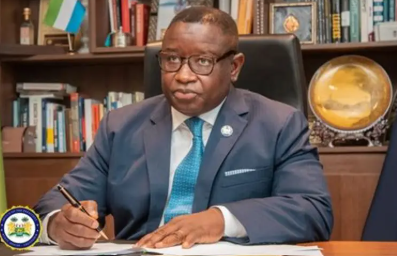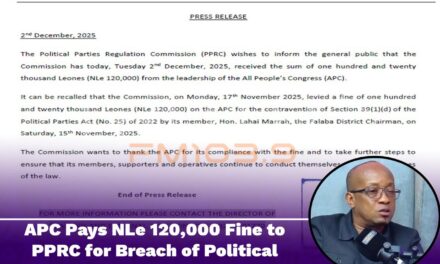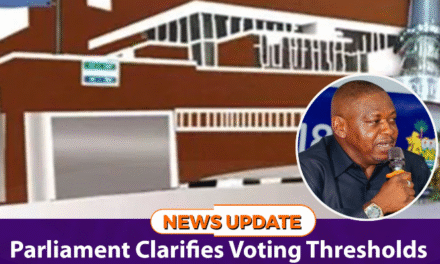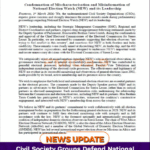By Ibrahim Mansaray
Freetown, September 1, 2025 – Sierra Leoneans have taken to social media to challenge President Julius Maada Bio to begin implementing his proposed power-sharing governance model immediately, rather than waiting until after the next elections.
The public reaction follows the President’s State Opening of Parliament address, where he called for renewed national dialogue on proportional representation and not only for parliamentary elections but also across the executive and public sector.
“Mr. Speaker, Honourable Members, as leaders entrusted with our nation’s future, we must continually champion reforms that foster unity and inclusion,” President Bio said during his speech.
Presidential Spokesman Alpha Kanu later confirmed to Truth Media that the president was proposing a power-sharing system, which he intends to legislate. According to Kanu, the initiative is designed to ensure that all political parties are represented in the executive arm of government, promoting inclusion and national cohesion.
However, many citizens have taken to social media calling for the president to lead by example and begin the process now. Social media platforms have been flooded with calls for immediate action.
“Let him start the power-sharing by removing underperforming appointees and appointing other people across the political divide,” wrote Abdul Karim Kargbo on Facebook.
“Let him start by doing it now, then we will know he really means it,” added Abdul Rahman Bangura.
While Kanu maintains that the president has previously extended an olive branch to the opposition, he said they have consistently declined to collaborate. He also noted that the power-sharing proposal, like the proportional representation system, will ultimately be decided by the people.
Since assuming office in 2018, President Bio has appointed a number of opposition figures to various roles, including Kanu himself in 2022. However, many of these appointments have led to political realignments rather than sustained cross-party governance.
The recent alliance between the ruling SLPP and the National Grand Coalition (NGC) did not result in a formal power-sharing arrangement. Instead, it paved the way for NGC leader Kandeh Kolleh Yumkella to return to his original party. Some members of the NGC have since accused the government of failing to honor the terms of the agreement, with embattled chairperson Jesmed F. Suma suggesting legal action may be considered.
Sierra Leone has a history of power-sharing, most notably during the Lome Peace Accord of 1999, when President Ahmed Tejan Kabba shared power with RUF rebel leader Foday Sankoh in an effort to end the civil war. A similar arrangement was attempted in 1996.
Today, citizens are questioning whether such a model can work in a politically divided Sierra Leone. Some argue that power-sharing could weaken the role of opposition parties, while others believe it could foster broader inclusion if implemented transparently.
Political scientist Dr. Charles Sylva told Truth Media that any future power-sharing arrangement should go beyond the two major parties and include non-politicians with technical expertise. “Selection should also be made across all regions,” he said.
As the debate continues, the message from citizens remains clear: if power-sharing is truly about unity and inclusion, it should begin now, while President Bio is still in office.









